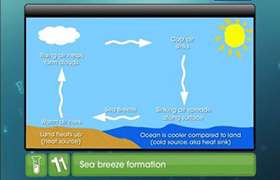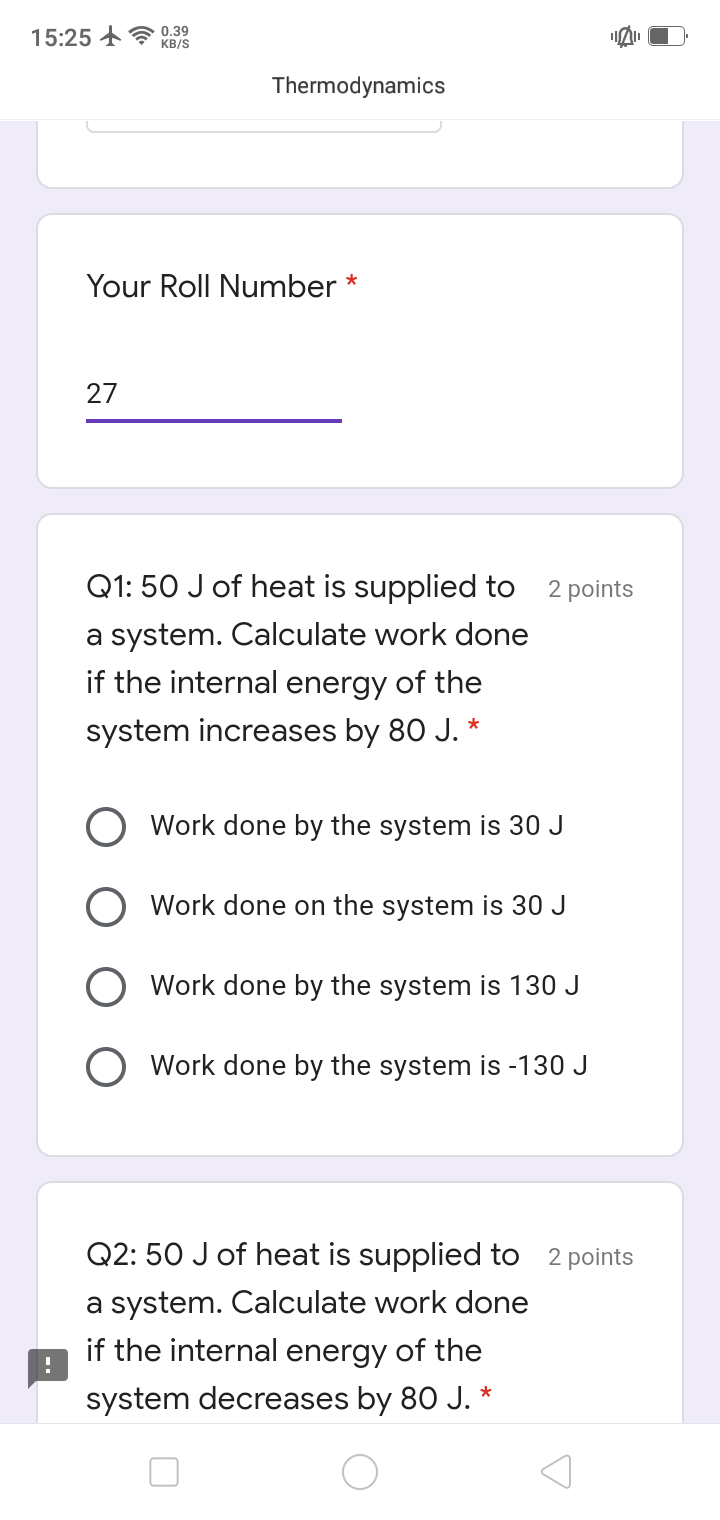CBSE Class 11-science Answered
explain the intensive and extensive properties?
derive an expression for a state function H i.e. dH= dU+p(dV) AND dH=dU+dnRT...
Asked by zrajani | 24 Aug, 2011, 12:00: AM
Properties that do not depend on the amount of the matter present are known as INTENSIVE properties.
Examples are
Color
Odor
Luster - How shiny a substance is.
Malleability - The ability of a substance to be beaten into thin sheets.
Ductility - The ability of a substance to be drawn into thin wires.
Conductivity - The ability of a substance to allow the flow of energy or electricity.
Hardness - How easily a substance can be scratched.
Melting/Freezing Point - The temperature at which the solid and liquid phases of a substance are in equilibrium at atmospheric pressure.
Boiling Point - The temperature at which the vapor pressure of a liquid is equal to the pressure on the liquid (generally atmospheric pressure).
Density - The mass of a substance divided by its volume
Properties that do depend on the amount of matter present are known as EXTENSIVE properties.
Examples are
- Mass - A measurement of the amount of matter in a object (grams).
- Weight - A measurement of the gravitational force of attraction of the earth acting on an object.
- Volume - A measurement of the amount of space a substance occupies.
- Length
According to the first law, dU = dQ - dW (for any process, neglecting DKE and DPE)
or after putting the value of W, dU = dQ - pdV
Also, we know H = U + pV therefore dH = dU + pdV + Vdp
so, dH = dQ - dW + pdV + Vdp (any process)
or
dH = dQ + Vdp (for any quasi-static process)
Answered by | 24 Aug, 2011, 03:45: PM
Concept Videos
CBSE 11-science - Chemistry
Asked by rukayabatool395 | 24 Mar, 2024, 07:48: PM
CBSE 11-science - Chemistry
Asked by mankdubey670 | 06 Jun, 2022, 01:27: PM
CBSE 11-science - Chemistry
Asked by rama26516 | 12 Mar, 2022, 01:49: PM
CBSE 11-science - Chemistry
Asked by advssdrall | 11 Jan, 2022, 07:44: PM
CBSE 11-science - Chemistry
Asked by mossewalasindhu | 20 Nov, 2021, 02:16: PM
CBSE 11-science - Chemistry
Asked by chandankumargochhayat6 | 19 May, 2021, 08:48: AM
CBSE 11-science - Chemistry
Asked by paulnaveed202 | 17 Dec, 2020, 12:36: PM
CBSE 11-science - Chemistry
Asked by kjay0981 | 13 Dec, 2020, 03:45: PM
CBSE 11-science - Chemistry
Asked by adityasolanki7773 | 22 Oct, 2020, 03:40: PM
CBSE 11-science - Chemistry
Asked by pranavisrihari | 08 Sep, 2020, 05:24: PM







